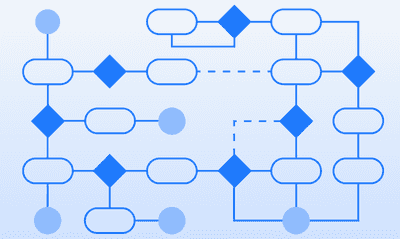Tips and Best Practices for Working in Your CRM Solution
CRMs are fantastic for helping businesses build relationships with their customers; when used to their full potential, they can significantly improve customer loyalty and retention. In this blog post, we are going to share some useful tricks of the trade to make sure that you are getting the best out of your CRM system.
6 min read

Tatiana Ogurtsovskaia
May 27, 2021

The ultimate focus of a business is to serve customers; to effectively do this, you need the right tools. Customer Relationship Management Systems (CRM) are designed to make building and maintaining customer relationships easier. Whether you are in sales, marketing, or customer service, CRM solutions can streamline processes through automation, improve efficiency through data analytics and optimize your team’s productivity through collaboration. However, if not utilized to its full potential, you can miss out on opportunities.
Before we deep dive into how you can get the best out of your CRM system, we need first to understand exactly what a CRM is.
What Is a CRM System?
A Customer Relationship Management system is a client-centric technology that helps organizations gather, store and analyze customer and potential customer information. This information is stored in one central location and can be used for all departments to better understand the customer, personalize the customer experience and build long-term client relationships.
CRM solutions can help your business in a number of ways, such as:
- Giving you a 360-degree view of the sales cycle, providing a clear overview of where each client is at and what needs to be done to close the deal;
- Helping to automate repetitive tasks, optimizing productivity;
- Enhance collaboration by providing all departments with synchronized data in real-time;
- Analyzing data to provide valuable customer insights;
- Equipping management with the knowledge of important business improvements;
- Storing information on every deal, helping salespeople to manage and nurture potential and existing customers;
- Assisting inbound marketing teams by streamlining communication with customers and potential customers;
- Assisting outbound sales teams by reducing the time spent on follow-ups with prospects by automating email sequences for each stage of the funnel.
While it is evident that a CRM can drastically improve business operations, it will only get you so far if you are not using it to its full potential. If you want your CRM solutions to be effective, setting you apart from your competitors, it is important to know CRMs best practices.
Here are 7 tips to help you get the most out of your CRM solution:
Implement Data Management Processes
As good and reliable data are vital for optimizing your CRM workflow, a significant part of implementing your CRM system is making sure that you create rules and processes around data. A CRM system is not going to clean up your data for you; therefore, you need to create rules around formatting data to ensure that all customer information is entered correctly and that data management is consistent.
Consistency is essential when entering data is it optimizes search functions, is easier to analyze, and avoids duplicate entries. Along with consistency, you should create a checklist of all the essential pieces of demographic and firmographic data that you want your team to collect; without having a clearly defined checklist, you can miss important customer data. Clearly defined CRM data management processes are best practices, as they will help streamline the capture of information in CRM, ensuring that you have more accurate and detailed records for online sales and marketing campaigns.
Train Your Staff
CRMs are designed to capture and organize data; however, ensuring that the data is properly used is paramount to the business’s success. When setting up your CRM system, one of the most important steps in the onboarding process is training your staff and ensuring that they understand the processes. Training will ensure that your workforce understands how to use the features to their full capabilities, helping to improve efficiency and avoid any inconsistencies.
Along with being more productive, adequate training will result in your team being able to interpret and analyze data, which will enable them to produce valuable conclusions and make informed business decisions. However, if you fail to train your workforce properly, your CRM can end up being just another system to store data, with valuable opportunities being missed. The best way to ensure this is to make the training sessions interactive, test their knowledge, and provide periodic training to ensure that all the information is being retained.
Use Automation
When it comes to lead generation, CRMs can streamline processes and improve efficiency for your team. They do this by automating repetitive and time-consuming tasks such as data entry, sending follow-up nurturing emails, deal progression, reporting, lead qualification, and booking meetings. The best practice when it comes to automation is to take advantage of it wherever possible. Not only does automation reduce the chance of errors, but it also frees up your employees’ time to focus on building relationships with customers and selling your product or service.
Collaboration
Another key benefit of a CRM system is its ability to improve collaboration amongst teams. Collaboration helps to grow the quality of customer service and therefore enhances customer relationships; this is done by providing a central location for customer information and data for all departments. To get the best out of your CRM solution, we would advise that you encourage cross-team collaboration and implement processes that support this. A fully collaborative CRM solution can allow departments to interact and exchange concepts, ideas, workloads, and tasks. By connecting the departments and encouraging them to work together, you can help them be more organized and efficient, helping them to collaborate on closing more deals and allowing for overall business growth.
Integrate Your CRM with Other Tools
To ensure that you are capturing all possible sales leads, data, and customer information, you should integrate your CRM system with other tools, platforms, and software that you are using. The integration will give you a 360-view of your prospects and customers while cutting down on manual data entry. CRM systems can be integrated with other tools such as landing pages, forms, social media platforms, email, calendar, project management software, and more. By integrating your tools with your CRM solution, you can ensure that all data captured will be kept in one central location, making it easier to access and stop any duplications.
Customize Your Solution
Every customer has different requirements, and you should customize your CRM’s sales process to suit those needs. Luckily, CRM solutions come with various strategies and applications that allow them to be modified to fit virtually any business strategy. It is vital to customize your CRM sales workflow and personalize the customer journey to give you the best chance of standing out from your competitors and close the deal. Personalized customer journeys make customers generate a genuine connection between the customer and your brand, improving satisfaction and boosting brand loyalty. Making sure that strategy is customer-centric will ensure that you have a long and lasting impression on your prospect.
Be Flexible
When developing a CRM strategy for your business, there is always room for improvement. Therefore, above all, you need to be willing to make changes to your CRM processes and strategy where necessary. Conduct regular reporting, analyze processes, and track metrics to determine if your CRM solution is performing to expectations, and if it isn’t, look to how it can be improved.
Conclusion
CRM is an amazing technology, and it is revolutionizing the way that businesses interact with customers; however, if you fail to use it correctly, then your business can miss out on valuable opportunities. By following these CRM best practices, you can ensure that you optimize your processes, take advantage of data and equip your staff with the knowledge to personalize the customer journey. Implementing a CRM system may seem daunting and time-consuming; however, once your team knows how to properly use it, the investment will certainly pay off and you will find that your team is more efficient, productive, and profitable.


